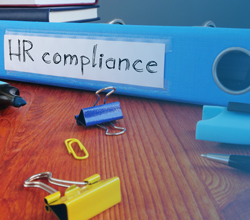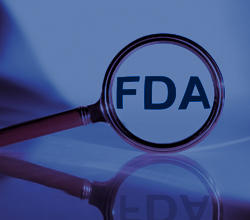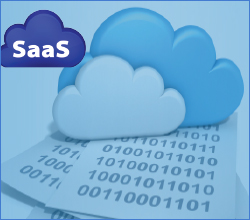
Case Management Outcomes: How to Create your Own Case Management Report Card
 Toni Cesta
Toni Cesta
 60 Min
60 Min
Product Id: 706503
Managing case management outcomes and the creation of tool with which to study those outcomes is an important component of the work that case management professionals must engage in. This data helps us to better understand where we are doing well and where we might need to improve. Case management report cards are also a useful tool for reporting data to the Utilization Committee, a requirement under the CMS Conditions of Participation for Utilization Review.

Aerospace Design for Reliability and Durability with High Return on Investment
 Dev Raheja
Dev Raheja
 90 Min
90 Min
Product Id: 706272
This webinar will cover the new paradigms for designing for design for reliability and durability. It will discuss how to plan for Zero Defects and long minimum life at little or no cost resulting in very high return on investment. It will cover real aerospace and industry examples from the instructor’s consulting experience.

Prevention of Infection in Healthcare Workers
 David Woodard
David Woodard
 60 Min
60 Min
Product Id: 703636
For healthcare facilities and long-term care facilities looking to promote employee safety in the workplace, this webinar will provide essential information on structuring your employee health program as per Center of Disease Control (CDC), Occupational Health and Safety Administration (OSHA), Centers for Medicare and Medicaid Services (CMS), and the National Institute for Occupational Safety and Health (NIOSH) recommendations.

Vendor/CRO Oversight of Clinical Trials Including Oversight Compliance During COVID-19
 Laura Brown
Laura Brown
 60 Min
60 Min
Product Id: 706527
This webinar covers the key requirements for CRO oversight compliance with the latest focus on GCP inspection in this area including during the challenging environment of COVID-19.

Good Clinical Practice (GCP) - As Applied To The Regulated Bioanalytical Lab
 Edward O Connor
Edward O Connor
 60 Min
60 Min
Product Id: 706433
Analysis of samples supporting a clinical trial requires familiarity with the clinical protocol, at least at the sample management and bioanalytical PI level. This understanding improves lab efficiency and regulatory and legal compliance.

FAO Food Risk Analysis Complete Framework
 Ben Marandi
Ben Marandi
 90 Min
90 Min
Product Id: 706523
The main goal of food safety management is the reduction of the incidents of foodborne illness to the lowest practical level. This can only be achieved by taking steps at each point of food chain where hazards can occur. Limited resources at regulatory and local level mean decisions must be taken regarding which actions are prioritized. Risk analysis is the tool to determine such actions.

Implementing a Bullet Proof Quality System for FDA Audit Success
 Meena Chettiar
Meena Chettiar
 60 Min
60 Min
Product Id: 705400
This webinar will provide an overview of the FDA expectations in medical device industries for setting up a quality system for FDA audit readiness. It will also provide an understanding of the quality system inspection techniques (QSIT) requirements for documents controls, production and process controls, packaging and labeling controls and more.

Current HR Requirements During the COVID-19 Pandemic
 Greg Chartier
Greg Chartier
 75 Min
75 Min
Product Id: 706452
Until recently, our worries as HR professionals were likely centered on initiatives around organizational transformations, automation and AI, and workforce skills gaps. And suddenly, in only a few days, many of our businesses have been upended, we’re implementing new work processes and employees are worried about their jobs and the very survival of the organization. The coronavirus outbreak is first and foremost a human tragedy, affecting hundreds of thousands of people. It is also having a growing impact on the global economy. What to human resource leaders need to do now and what preparation can be make for the future requires a perspective on the evolving situation and implications for their companies. The outbreak is moving quickly, and some of the perspectives in this webinar may fall rapidly out of date.

Doing Business in the Era of COVID-19
 William Levinson
William Levinson
 60 Min
60 Min
Product Id: 706519
The United States will have to go back to work despite the coronavirus menace, but lessons from 1918 show that failure to exercise common sense precautions could lead to additional illnesses and deaths. The good news is that off the shelf countermeasures are available to allow the safe resumption of business operations and avoid more shutdowns should COVID-19, or a mutated form of it, ever return.

WHO Guidance: COVID-19 Testing
 Mark Powell
Mark Powell
 60 Min
60 Min
Product Id: 706480
This webinar presents the current WHO guidance on laboratory testing of patients meeting the suspect case definition for COVID-19. The guidance covers both nucleic acid amplification tests, serological surveys and viral sequencing.

Covid-19 and Telehealth: Clarification of OCR Expectations of HIPAA Regulations
 Coy Murchison
Coy Murchison
 60 Min
60 Min
Product Id: 706492
The OCR announced it would lift penalties around telehealth use during the COVID-19 pandemic, its officials released clarifications around HIPAA compliance. The OCR notification of enforcement discretion applies to all HIPAA-covered healthcare providers that use telehealth services during this emergency. However, the notice explained that a health insurance company that pays for telehealth services is not covered by the enforcement discretion. Thus, payors may restrict certain platforms used for telehealth communication.

Issues in Calibrations and Accuracy in Method Validation
 John Fetzer
John Fetzer
 60 Min
60 Min
Product Id: 705945
This webinar will cover validation of calibrations and the strengths, weaknesses, and appropriateness of the different types of standards. Without accuracy, a result is not acceptable. There are many issues that affect accuracy and there are many approaches to deal with them. The importance of response, matrix effects, selectivity of identification, and other issues will be covered.

COVID-19: Working From Home Confidently and Competently
 Rebecca Staton Reinstein
Rebecca Staton Reinstein
 60 Min
60 Min
Product Id: 706438
People in many organizations have been working from home for years. However, with the current Coronavirus COVID-19 pandemic, many more workers are being asked to work from home. For those folks and those who supervise them, who are new to this mode of work, understanding how to accomplish goals in this new environment requires a quick learning curve. Working from home can be as productive or maybe more productive than traditionally going into the office. Learn the basics and some advanced approaches to get the job done in the most efficient and effective way.

Complying with Garnishment Orders
 Miles Hutchinson
Miles Hutchinson
 90 Min
90 Min
Product Id: 705558
In this webinar, you will receive step by step guidance on how to evaluate and process the various types of garnishment orders including child support, spousal support, alimony, federal and state taxes, bankruptcy, student loans, and creditor garnishments.

How to Take Advantage Of Foreign Trade Zones And Bonded Warehouses
 Douglas Cohen
Douglas Cohen
 60 Min
60 Min
Product Id: 706144
This webinar will explore the uses of FTZs and bonded warehouses, how to set them up and operate them, and how to determine their practicality and effectiveness for your business.

Medical Device Emerging Markets - Market Access & Obstacles
 James W Monroe
James W Monroe
 60 Min
60 Min
Product Id: 706493
This webinar will focus on "non-traditional" medical device markets, challenges to market access including competitors and government regulation or lack thereof. Outside of the most developed countries, there are many areas in the world, not as developed, where registration and marketing of medical devices is extremely lucrative. These include: Latin America (LATAM), Asia Pacific (APAC), and The Middle East (EMEA).

Addressing Drug Use and the Changing Legal and Social Environment (Recreational and Medicinal Marijuana Use)
 Greg Chartier
Greg Chartier
 60 Min
60 Min
Product Id: 706514
Drug use and abuse has been an ongoing topic for discussion by employers for decades. In fact, pre-employment drug testing is conducted by more than 80% of US employers. In the past few years, however, changes in the social and legal environment, particularly at the state level, have brought new attention to the concerns over drug use. In addition, the misuse or prescription drugs, in particular opioids, have raised new concerns for employers over safety and security. What do employers need to know about the current environment and what can they do to protect their employees and the firm form problems related to drug use and abuse.

Ways to Identify and Manage Difficult People
 Valerie Pelan
Valerie Pelan
 60 Min
60 Min
Product Id: 706476
In this webinar, you will learn how to identify and ways to manage difficult people. You will learn the personality traits of difficult people. You will like this presentation because by the end of the presentation you learn the difference between someone who is difficult verses someone who has a different style and is not difficult.

Managing Difficult People and Dealing with Conflict
 ArLyne Diamond
ArLyne Diamond
 60 Min
60 Min
Product Id: 706467
Attend this webinar to learn how to recognize and deal with many different types of people. From mild misunderstandings to serious conflict, you will acquire strategies for finding workable solutions.

The Business of Hospital Case Management
 Bev Cunningham
Bev Cunningham
 60 Min
60 Min
Product Id: 706508
Case management leaders must now understand the business of their departments, understand what to collect, where to find the data and the report their outcomes. RN case managers and social work case managers must understand their department outcome results and how they can impact improvement in those outcomes. This webinar provides the understanding.


























